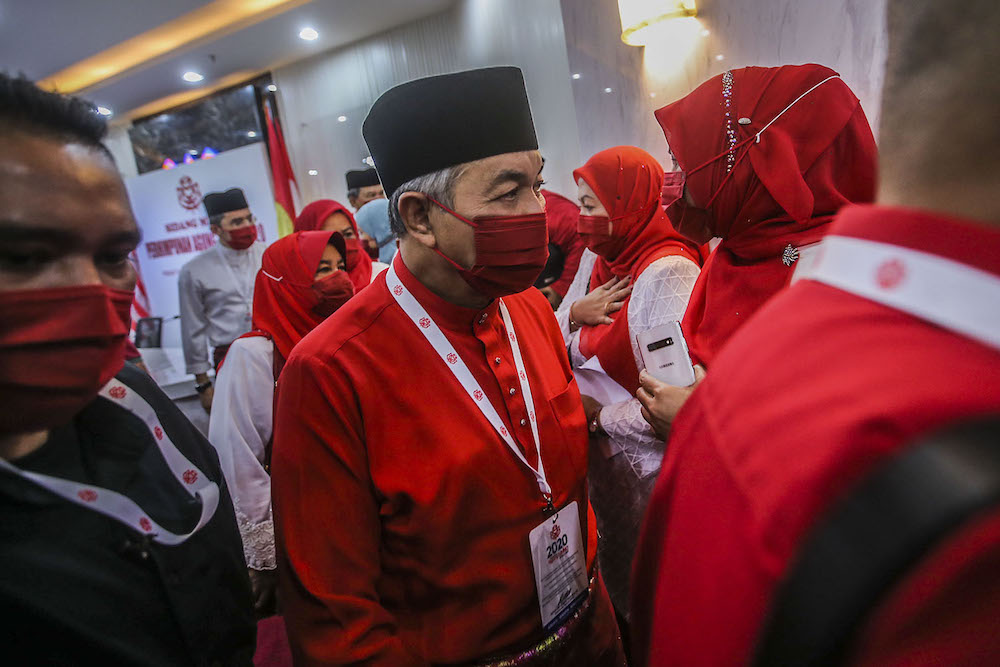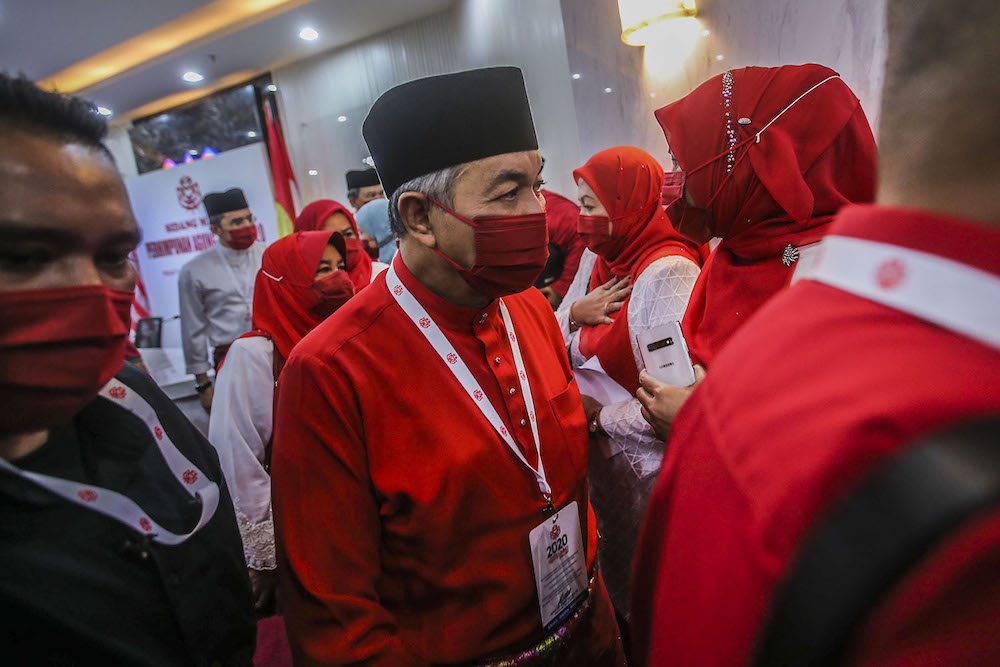
Subscribe to our Telegram channel for the latest updates on news you need to know.
KUALA LUMPUR, March 31 — Umno’s suggestion that it may contest the 15th general election (GE15) alone could sabotage the Malay nationalist party’s own chances at expanding its control of Parliament, political analysts said.
Even as the Barisan Nasional (BN) lynchpin’s clout among the Malay electorate remains solid, pundits said exacerbating tension with PAS could pit the two parties against each other and split the conservative votes, a scenario that would play into the hands of their political rivals.
At Umno’s 75th general assembly over the weekend, party president Datuk Seri Ahmad Zahid Hamidi said it had no qualms about contesting under the BN banner, which intensified speculation that it was prepared to sever ties with PAS.
The duo are part of the Muafakat Nasional electoral pact but relations between them have been rocked by Umno’s clash with Bersatu.
Oh Ei Sun, a senior fellow at the Singapore Institute of International Affairs, said prolonged tension with PAS would be strategically impractical for Umno, who would still need to negotiate some form of deal to prevent multi-cornered contests.
“Umno is still very influential despite the emergence of Bersatu. Umno’s vow to go alone is with regards to Bersatu and PH, but is not necessarily directed at PAS,” he said.
“PAS is wooed by both Umno and Bersatu as its electoral mobilisation machinery is legendary and could benefit whomever is its ally. At the least, Umno would not like to face PAS again as it did in 2018, which cost Umno the election.”
The Umno-PAS split is seen as a major factor that contributed to BN’s defeat at the 2018 elections, the coalition’s first in over six decades.
Still, both the parties accounted for up to 75 per cent of the total Malay ballots. Despite being plagued by scandals, a majority of it went to Umno.
The two then formed Muafakat Nasional in 2019 confident that it could regain power on the back of growing impatience against the then Pakatan Harapan government for its perceived failure to fulfill key election pledges.
Umno, with the help of PAS, won half of the by-elections since the 14th general elections as a result, including the Tanjung Piai parliamentary seat where a significant number of Chinese votes swung back into BN’s fold.
Shazwan Mustafa Kamal, senior associate with political risk and public policy consultancy Vriens & Partners, believes that without the Islamists it appears unlikely that Umno could replicate the momentum.
“While there is some uncertainty surrounding the pulse of voters and whether they have an appetite for a new government, what is certain is that Umno is no longer the behemoth it still considers itself to be,” he said.
“A best case scenario would see Umno winning the same number of seats it won in GE14, but this still would not be enough to form a government,” the analyst added.
“Umno will likely need to align with other political parties after GE14 and given their stance against Bersatu, this leaves Umno with Pakatan Harapan and PAS.”
Ahmad Zahid had said that Umno is open to the idea of a coalition government but said negotiations will only take place once the elections are concluded, ostensibly because he feels the party would sweep more seats and give it leverage to dictate terms, according to some analysts.
This may include the possibility of working with PH. Ahmad Zahid has been linked to rumours of negotiations and backdoor meetings with Opposition Leader and PKR president Datuk Seri Anwar Ibrahim.
“Umno/BN may not work with PH now but they may do so later if both BN and PH have the numbers to form the government. PAS seems committed to prioritising their alliance with Perikatan Nasional over Muafakat at the moment,” said Shazwan.
Ahmad Zahid has to date denied the claims while Anwar has insisted that attempts have been made.

